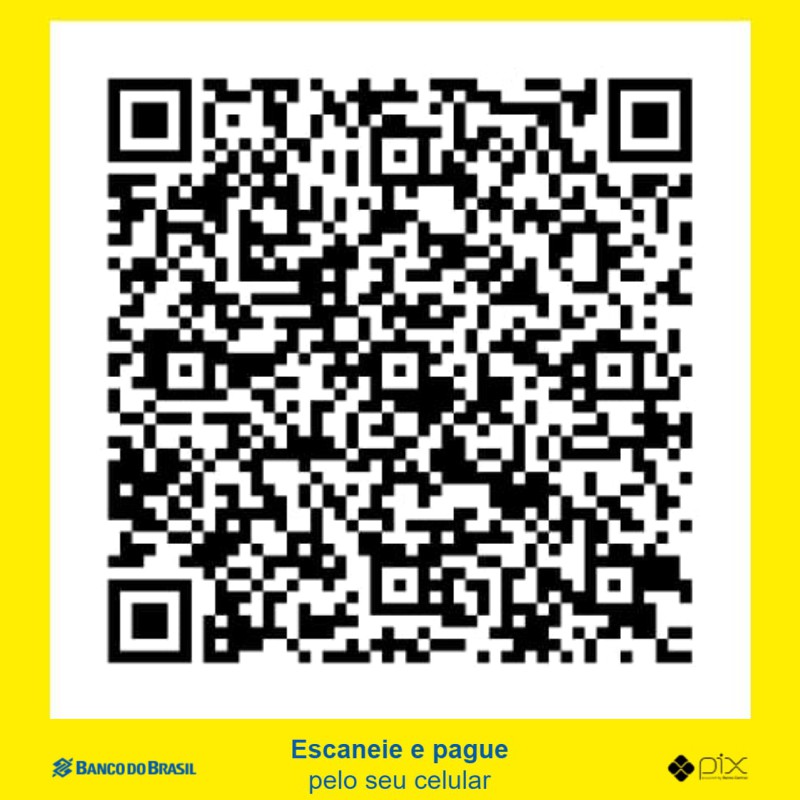Education that transforms.
Rede Synapse is a non-profit social organization that pursues promoting human development through education.
What is Rede Synapse
Rede Synapse is a non-profit social organization that pursues to promote human development through education. To achieve this goal, it has developed its own social technology, the Synapse Methodology. By offering methodological training through its Training Courses and continuous pedagogical support via its network, the NGO trains and supports teachers in Early Childhood Education and the initial years of Elementary School (1st to 3rd grades), ensuring the reapplication and propagation of its methodology.
In the Synapse Methodology, tools and pedagogical content created and refined by teachers are applied and unique characteristics of each region are respected, to provide quality education for all children in Brazil.
Currently, Rede Synapse consists of teachers from various Brazilian states who, despite experiencing different realities, face very similar challenges in their classrooms.
History
Synapse Methodology was born in 2010 through a partnership between the Municipal Education Network of Santa Luzia do Itanhy – Sergipe (SE) and The Human Project (THP) researchers who develop social technologies in basic education, entrepreneurial education, and basic health in communities. Over 13 years, the Synapse Teachers’ Network spread its methodology across several Brazilian states. It underwent an empowerment process that led to a significant milestone in 2023: its consolidation as an independent NGO from The Human Project, opening the path to even greater achievements.
About us
Synapse Teachers
We believe that by empowering teachers, we are transforming education in our country. When teachers receive appropriate support, they become agents of change who can positively impact students’ lives. Our mission is to provide support to teachers so that their pedagogical practices are effective and aligned with the realities of schools in their communities, especially in the poorest municipalities in Brazil. Through an innovative methodology, the Synapse Network teachers engage in a continuous learning network, sharing experiences, developing their skills, and adapting to students’ needs.
Our flexible and contextualized approach allows teachers to engage with the most effective pedagogical practices and apply them successfully in their classrooms. At Rede Synapse, we understand the challenges teachers face daily. We know that professional development throughout our career doesn’t always achieve the desired results. That’s why we are here to support them.
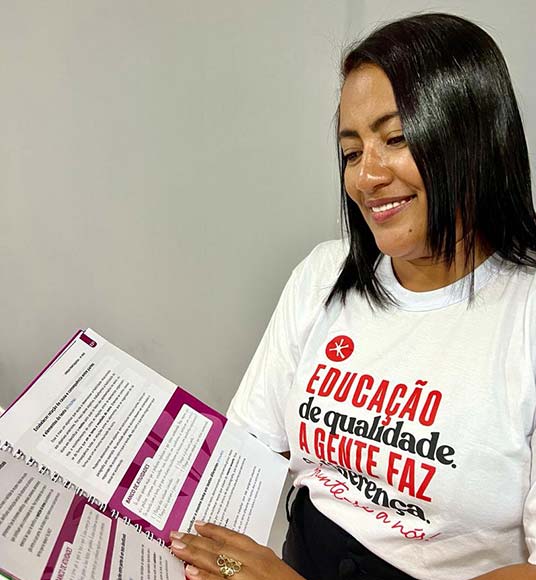
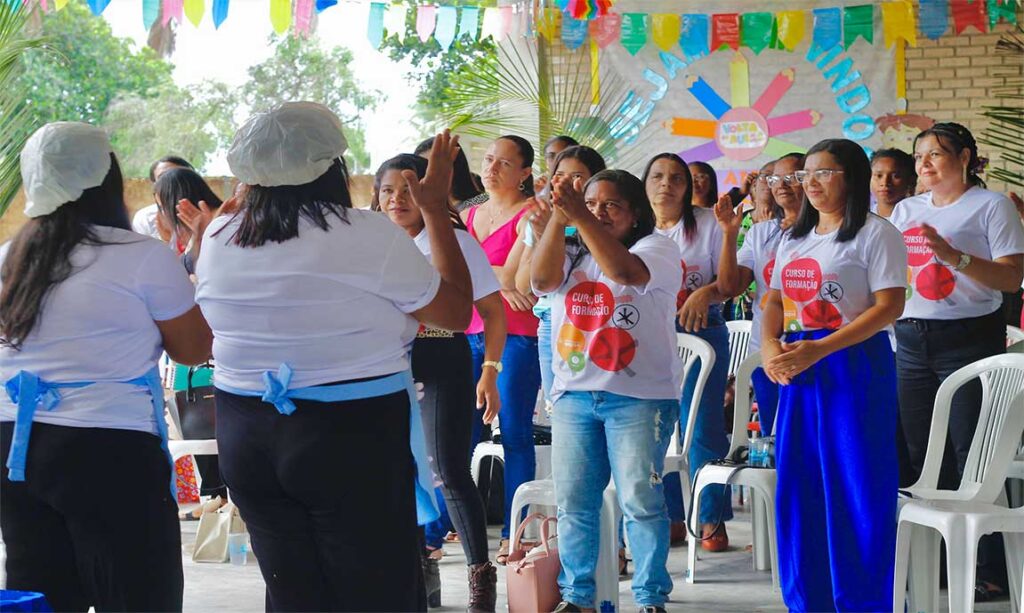




Our Team
Kiara Ramos
Founder and Mobilization Leader
A teacher in Santa Luzia do Itanhy’s municipal education system, she is one of the founders and co-authors of the Synapse Methodology. She is currently the Leader of Rede Synapse. Kiara believes that representing this group fulfills an ideal: sharing innovation and motivating educators toward the beautiful mission of transforming lives through education. For her, it is a dream coming true.
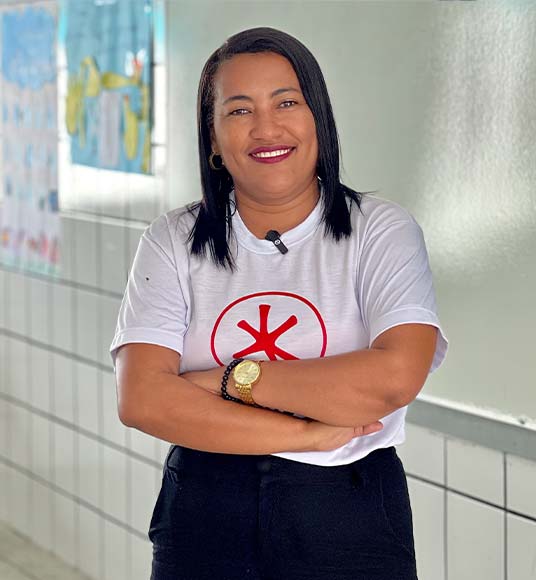

Aline Santos
Founder and Training Coordinator
A teacher in Santa Luzia do Itanhy’s municipal education system. She is one of the founders and co-authors of the Synapse Methodology. She is currently the Training Coordinator for Reapplicators at Rede Synapse. Aline has contributed to the development and enhancement of the Training Course on the Synapse Methodology for teachers, which has led to the improvement of pedagogical practices in the classroom.
Raiane Ribeiro
Synapse Early Childhood Education Coordinator
Coordinator/Researcher of the Synapse Early Childhood Education Program (Synapse EI) social technology at The Human Project (THP). She graduated from Tiradentes University (Unit) with a degree in mathematics education. Postgraduate student in Mathematics Teaching Methodology and Neuropsychopedagogy at University Center Leonardo da Vinci (UNIASSELVI). Technician in Administration from the Education State Department (SEED/SE). Member of the History of Educational Practices Research Group (PPED/UNIT). Graduate student in the Applied and Computational Mathematics program at the Federal University of Sergipe (UFS).
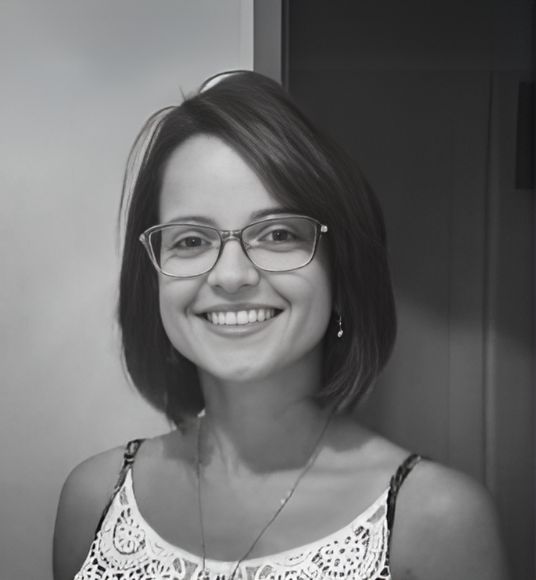
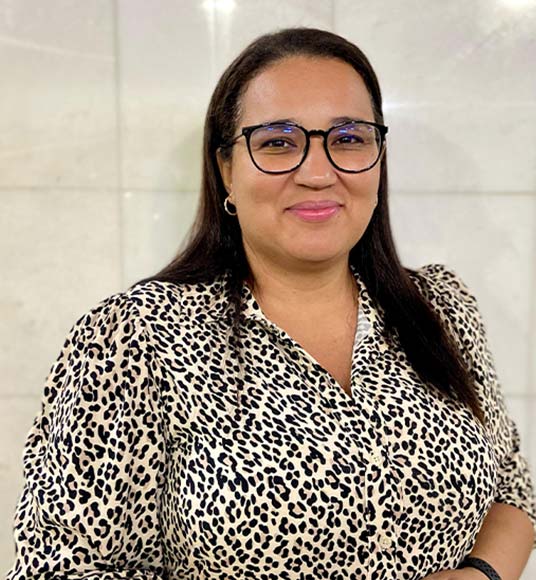
Deisy Alves
Synapse Social Technology Project Coordinator
Bachelor of Laws, Pedagogue, Psychopedagogue specializing in Inclusive Education, and certified PMD Pro (Project Management for Development) Manager. She is the Project Coordinator at the Synapse Social Technology. Currently, she coordinates the implementation of the Synapse Literacy program Social Technology (1st to 3rd grades of Elementary School) in Sergipe, Minas Gerais, Ceará, and Maranhão states. Over the last four years, Deisy has focused on project management, strategic planning, monitoring and evaluation, and stakeholder engagement.
Yago Reis
CEO
Social and Human Development Project Manager certified by PM4NGOs (Project D Pro). He is the CEO of the Synapse Network. Yago has been working in the management and coordination of Social Technologies since 2017, implementing large-scale projects with social impact, such as the deployment of two Social Technologies for Education and Technological Innovation across 38 municipalities in 6 Brazilian states. His commitment is to manage transparently and responsibly, centering on expanding the propagation of the Synapse methodology.
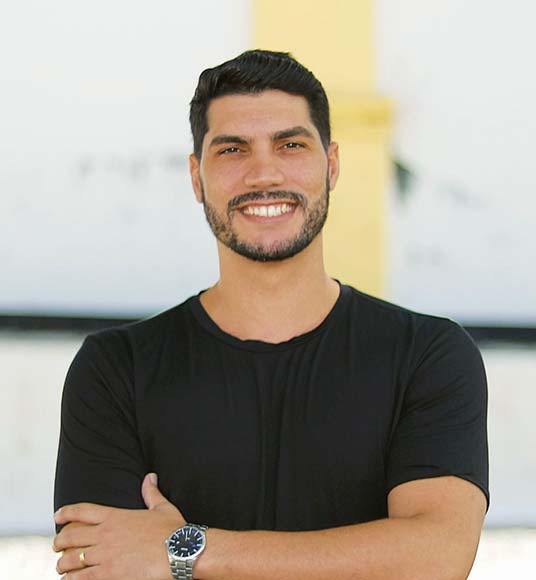
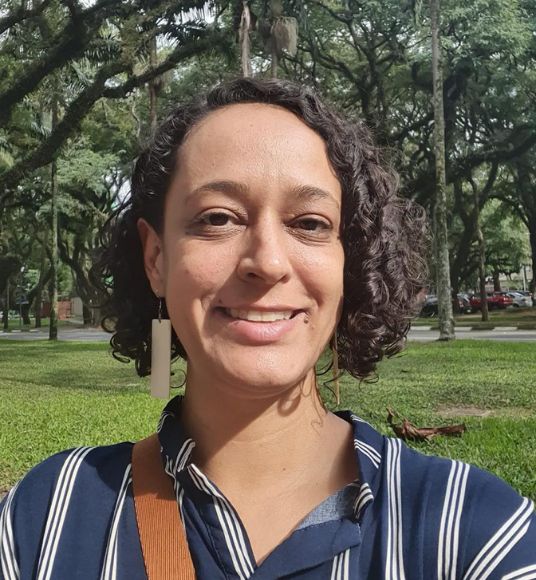
Caroline Tosta
Content Coordinator
Specialist in Bilingual Education Practices from University Center UniDomBosco (UniDomBosco) and in Business Administration from Fundação Getúlio Vargas (FGV), with degrees in Letters from Virtual University of São Paulo (UniVesp), Pedagogy from Nove de Julho University (UniNove), and International Relations from São Paulo State University (UNESP). Caroline has been working as the Content Coordinator at the Synapse Network, aiming to promote educational solutions and continuous improvements in the Training Course’s teaching materials. For her, it is very important and rewarding to contribute her experience and wide, reflective, and analytical perspective on Education.
Tatiane Lima
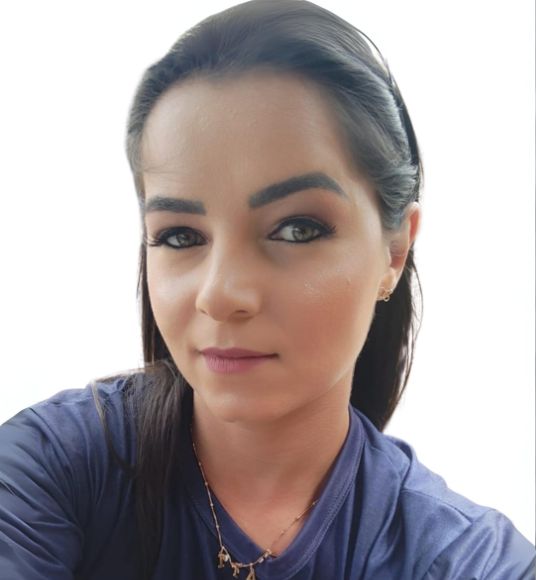

Cristiane Barbosa
Synapse Network Communication Coordinator
Pedagogue Teacher and Psychopedagogue for Aquidabã, Sergipe (SE). She is the Communication Coordinator at Rede Synapse. Cristiane started her journey with Rede Synapse in 2017 by participating in Training Courses and becoming a Reapplicator of the Synapse Methodology. For her, education is the only way to transform people’s lives, enabling those who face difficulties and obstacles to change their world.
Nivea Mota
Rede Synapse Administrative and Financial Coordinator
A graduate in Letters, Executive Secretary, and Specialist in Entrepreneurship in Business and Service Management. She is the Administrative and Financial Coordinator at the Synapse Network. Nivea is a professional with over 30 years of experience in administrative and financial roles, with the added advantage of expertise in preparing NGO accounts for government bodies, and private companies. For her, coordinating administrative and financial activities with an assertive approach, aiming to achieve goals, meet deadlines, and attain excellence, is a way to contribute to the successful execution of projects.
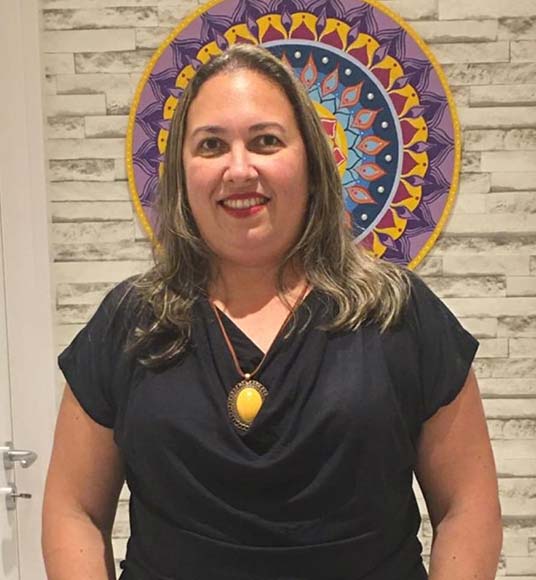
Synapse is a pedagogical methodology that combines knowledge from Educational Neuroscience with the experiences of public-school teachers in their classrooms. Its goal is to improve the quality of teaching and learning in early childhood education and literacy.
The studies used an electroencephalography device that allowed researchers to observe and record the brain’s electrical activities during the learning process. This device enabled the experiment to observe and understand the difficulties many students face during their early years in elementary school. In partnership, teachers and researchers collaborated to develop the Synapse Methodology, combining scientific studies with classroom practice.
The Synapse methodology requires teachers to carry out pedagogical work guided by specific steps outlined in the Synapse Goals Matrix. The learning goals reflect the skills and competencies correlated with the National Common Curricular Base (BNCC), Brazil’s normative document that defines what must be taught to students.
The pillars of the Synapse methodology are contextualization and planning. Based on these pillars, two methodologies were developed: the Synapse Literacy program and the Synapse Early Childhood Education program.
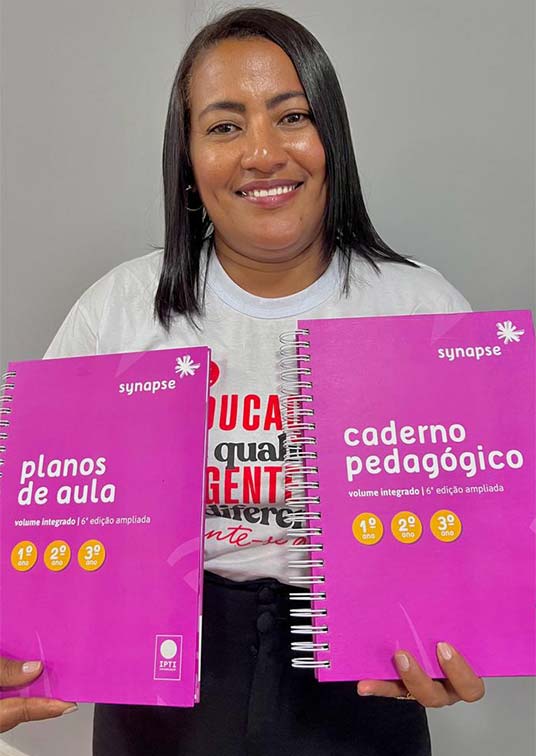
Synapse Literacy Program
One of the pillars of the Synapse Methodology is planning based on learning goals so that each teacher selects a goal from the Synapse Goals Matrix and plans how to conduct the activities every two weeks. This way, in a connected and contextualized manner, teachers can make the most of the available audiovisual resources.
To facilitate the learning process for students, who are at the center of the learning process in the Synapse Methodology, teachers use students’ life context along with the available resources to address Portuguese Language and Mathematics skills and competencies in the literacy cycle of the early Elementary School years. This strategy also allows teachers to monitor students’ performance regarding their understanding of the content and enable them to advance or revisit topics based on this observation.
The development of this Social Technology started in 2010, and it continued until the end of 2015 when the first effective and applicaple version of Synapse was achieved. This version consisted of a Pedagogical Notebook, Lesson Plan, Digital Platform, and playful resources for classroom use (Pedagogical Support Materials). The whole process was carried out collaboratively, involving The Human Project team and a group of teachers from public schools in Santa Luzia do Itanhy, Sergipe (SE).
At the end of 2015, a partnership between The Human Project (THP) and the Sergipe State Department of Education (SEED) enabled a scalability test with the reapplication of the Synapse Methodology across all public schools in 13 municipalities in the Baixo São Francisco region, in the northern part of the state. The effectiveness of this model ensured that, by 2018, the Synapse Network involved more than 110 public schools with the participation of 300 teachers and benefiting 6,500 students. Most importantly, the project continued into 2019, even without external support.
In August 2019, we began the reapplication experience in another Brazilian state, Maranhão. The project lasted 20 months, and initially involved 60 teachers, five pedagogical coordinators, and 25 school managers from 15 schools, benefiting 984 students.
From 2019 to 2024, the methodology crossed new frontiers and is now present in 54 municipalities in 7 Brazilian states: Sergipe (SE), Maranhão (MA), Minas Gerais (MG), Ceará (CE), Paraíba (PB), Pará (PA) and Rio Grande do Norte (RN), having trained 2,423 teachers and impacted 51,800 students.
Synapse Methodology Components:
- Pedagogical notebook to support teachers;
- Lesson Plan to support the teacher’s lesson planning, focusing on the pedagogical goals of the Synapse Goals Matrix.
Synapse Early Childhood Education Program
The Synapse Early Childhood Education Program (Synapse EI) is a branch of Rede Synapse’s social technology, focused on literacy with a specific methodology for early childhood education. Both social technologies center on the child/student in the learning process, starting with the professional development of teachers and, thus, creating a network of qualified educators.
During the Synapse experiment in the municipalities, it became evident that pedagogical practices promoting learning in the classroom should address not only cognitive aspects but also non-cognitive skills, such as attention, perseverance, creativity, sociability, and impulse control. These skills are crucial for developing the ability to face challenges related to daily school life and social and cultural relationships. Throughout this experiment, teachers participating in Synapse reported that students entered the first year of Elementary School with serious learning problems, including motor, socio-emotional, and cognitive issues.
Furthermore, studies by American economist James Heckman were considered, which says that to reduce social costs, address delays in child development, and improve student performance in the early years of Elementary School, it is crucial to invest in Early Childhood Education.
From this perspective, between 2018 and 2021, through a collaborative process, The Human Project, in partnership with a group of Early Childhood Education professionals from the municipal school system of Santa Luzia do Itanhy, Sergipe (SE), began developing a social technology aimed at improving the quality of Early Childhood Education and the holistic development of children. This was achieved through the Synapse Early Childhood Education project aligned with Synapse social technology.
Throughout this collaborative development of the Synapse Early Childhood Education program social technology, essential pedagogical resources were created for the effective application and reapplication of the methodology, including the Integrated Planning and Pedagogical Notebook, the Pedagogical Support Materials for Early Childhood Education, and the Methodology Reapplication Booklet.
In 2022, Synapse Early Childhood Education social technology began its first scalability experience, reapplying the methodology in schools in the municipalities of Campo do Brito, São Miguel do Aleixo, Santa Rosa de Lima, and Nossa Senhora de Aparecida. From this, there was an increase in the number of Early Childhood Education schools benefiting from the Social Technology in Santa Luzia do Itanhy, Sergipe (SE). This experience led to the development of the reapplicators: Lícia Muniz and Nataly Almeida, kindergarten teachers in Santa Luzia do Itanhy(SE), whose potential was highlighted during the development of the technology.
The reapplicators’ understanding and in-depth knowledge of the methodology were crucial to identifying new teachers with reapplication potential while validating and improving the reapplication model.
Currently, Synapse Early Childhood Education program social technology operates in 6 municipalities in Sergipe (SE), and it has benefited 191 Early Childhood Education teachers, and, consequently, impacted an average of 2,667 Early Childhood Education children in the classroom.
How to Help
Your donation goes to
Production and improvement of educational resources
transportation to
training location
Reapplicators’
payment
You can support the quality of education for a better Brazil:
THP is an executive partner of Rede Synapse and assists in the organization’s financial management. All donated funds will be used for initiatives developed by Rede Synapse.
Our
Partners
Partnership:

Support:

Blog
Contact
Questions?
Suggestions?
Contact
Us

